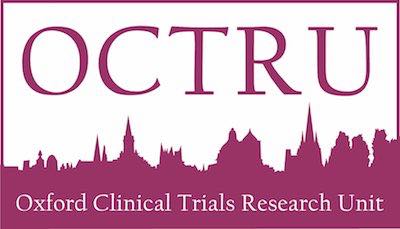What is the purpose of the study?
This small study of 60 people will help us plan a larger study that will aim to investigate better physiotherapy treatments for people who have had a neck dissection as part of their treatment for head and neck cancer.
At the moment if you have a neck dissection operation for head and neck cancer, whilst you are staying in hospital to recover from your operation you are seen by your surgeon, cancer team and a physiotherapist. However when you leave hospital the NHS currently does not have routine planned physiotherapy. Unfortunately, after a neck dissection operation quite a few people have problems with shoulder and neck movement and in returning to work or doing everyday tasks such as dressing, household chores and gardening. Some surgeons and physiotherapists from around the UK and beyond think that if people were given physiotherapy after leaving hospital this might improve a person’s recovery from a neck dissection. Therefore a group of researchers (Head and Neck Surgeons and Physiotherapists) have been granted funding from the UK Government to set up this small study which has been called the GRRAND-F study, to start to test if providing more physiotherapy affects recovery.
In the GRRAND-F study, all patients that have a neck dissection will receive normal (usual) NHS care including inpatient physiotherapy after their operation. However, half of those that agree to take part will receive 6 sessions of hospital based physiotherapy as an outpatient in addition to usual inpatient NHS care. These physiotherapy sessions have been specifically designed for patients who have had a neck dissection.
Studies (which can be also called clinical trials) usually want to find out if one treatment is better than another, or perhaps the same, to ensure that treatments that do make a difference are funded and available to those that need them within the NHS. This is the ultimate aim of the clinicians and researchers running the GRRAND-F study.
To get a definitive answer about a treatment a clinical trial usually needs at least 400 people to take part, this is very expensive to undertake and when you are testing brand new treatments funders need to understand if people would want to take part in a study such as GRRAND-F. Therefore this initial phase of the study will be asking for only 60 people to take part to see if people are happy to take part and if the additional 6 sessions of physiotherapy that have been developed are acceptable not only to those people delivering them (the physiotherapists) and also most importantly to participants.
Who is taking part?
We are hoping to recruit 60 men and women who have had neck dissection surgery as part of their treatment for Head and Neck Cancer in a small number of centres within the UK.You have been invited to take part in this study because you are about to undergo this operation and might potentially be a suitable participant.
What will happen to me if I take part?
If you decide to take part then, during your pre-operative assessment appointment at the hospital, you will be asked to sign a consent form and will be asked to complete some questionnaires on your health and wellbeing. This should take about 30 minutes.
A few weeks after that, when you come in for your operation, we will check that you are still happy and safe to take part in this study. If you remain eligible, you will be entered into the study.
A researcher will enter your details into a computer and a computer program will make a decision about which group you will be in whilst in the study. This allocation is made by chance, rather like the toss of a coin. This is important because it ensures that the treatments are tested fairly and no one can influence the group the computer puts you into.
GRRAND-F Treatment Group
If you are in the GRRAND-F physiotherapy treatment (in and out patient physiotherapy), you will have a physiotherapy session before your hospital discharge. You will then attend up to 6 sessions of outpatient physiotherapy – this will generally start within 2 weeks of your discharge from hospital at the latest. The first physiotherapy session will last no longer than 60 minutes with the other sessions lasting no longer than 45 minutes. During these sessions, the physiotherapist will assess you and work out whether there are any problems which are slowing your recovery. They will then ‘target’ these problems and provide you with physiotherapy treatments to improve these. These will generally be exercises and advice on how to improve the outcomes between physiotherapy sessions.Where possible we will ensure your GRRAND-F physiotherapy appointments are scheduled alongside your regular clinical appointments.
A researcher from the GRRAND-F team based in Oxford may attend some of your GRRAND-F physiotherapy sessions so that we can check how the treatment is being delivered. This is only to ensure that the sessions are being run correctly.
Usual NHS Care Group
If you are in the usual NHS care group you will receive physiotherapy whilst in hospital. This will include home exercises to continue to help strengthen your arms and neck. If you require further physiotherapy, this will be arranged by your surgeon or physiotherapist.
Follow-up
Six-months after your operation, when you come for your routine follow-up clinic appointment with your surgical team at the hospital, you will be assessed by a health care professional and provided with some questionnaires similar to the ones we asked you complete before your operation.
If your 12 month follow-up appointment with your surgical team occurs whilst the study is still running (to Spring 2022), then we will repeat the assessment to collect this information at that appointment too.Each assessment will take about 30 minutes to complete. Once the assessments have been completed that is the end of the study for you.
If for any reason you miss your clinic appointments we will contact you by phone on a maximum of 2 occasions. We can then post the questionnaires for you to complete and return in the stamp addressed envelope provided. You will not have to make any extra visits to your doctor or the hospital over and above those needed for your normal care.
Optional Interviews
We would like to understand more about people’s experiences of being involved in this study. To help us with this, we will invite some participants to have an interview with a researcher. This would involve a face-to-face chat with one of the study researchers to ask about how you got on with the study, including the assessments and treatments, so we can work out if a bigger study could be improved upon. These meetings would last a maximum of 1 hour and would be in a location which is convenient to you. Only 15 patients are required for these optional interviews so you may not be required for this part, however we may offer this opportunity to you once you have completed your treatment. Taking part in these interviews at the end of the study is entirely optional.




